6th November 2023
Listen
Listen
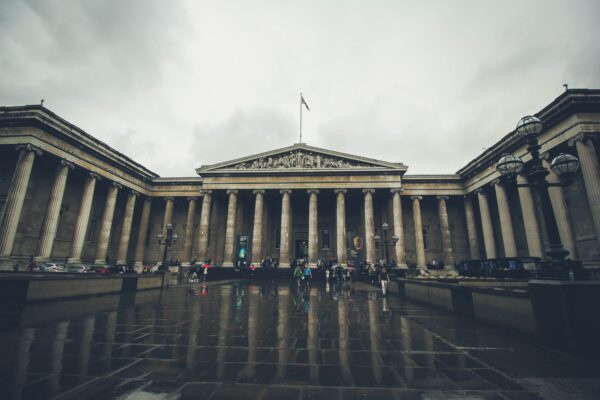
On the 6th of May 2023, the British taxpayer spent between £100 million and £250 million crowning Charles III. He rode in a golden carriage, covered in jewels and valuables pillaged and stolen from lands afar. Every year, the debate around the British monarchy and whether it should still exist rages on more and more. Due to this, surely we should question an institution rooted in its empire, exponentially grown by it and still reaping the benefits today. In Charles’ honour, it feels apt that we should take a look at some of Britain’s worst colonial crimes.
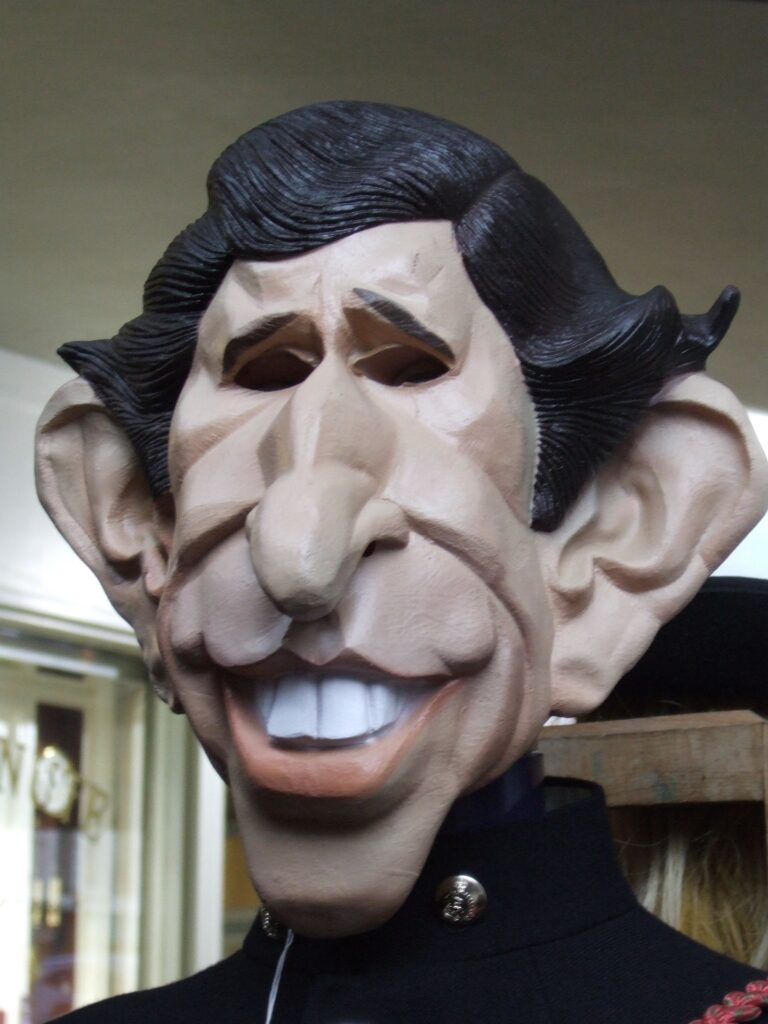
By Christmas Day 1831, there were over 300,000 enslaved people in Jamaica. A few days later, 60,000 of them revolted against their (mostly British) plantation owners. Different small groups rebelled and reached varying levels of success. By the mid-way point of January 1832, the revolt had mostly been quelled. According to official reports, over 200 enslaved people had perished at the hands of planters and the British military. In truth, there are estimates it was much more likely to be over 400.
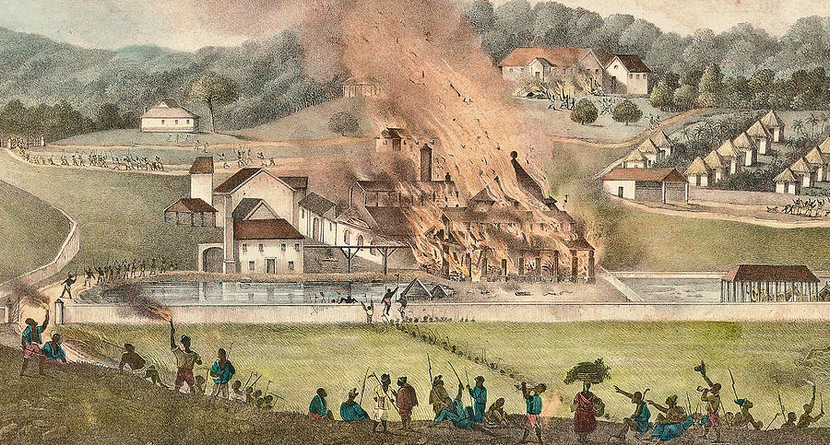
In the weeks following, over 300 enslaved men and women were executed through different ‘judicial’ means. However, this is just a smudge on the long list of harsh punishments used throughout the Empire on colonised citizens, a speck on the long list of Britain’s colonial crimes. After centuries of plantocracies ruling the Caribbean, this revolt was one which caused the government to analyse its harshness. It helped lead to the Slavery Abolition Act of 1833. However, this didn’t end Britain’s colonial rule, nor did it require the country to reflect on the violent white supremacy they had espoused the world over.
Britain’s cities and people benefitted massively from the slave trade that they had helped develop and fine-tune. This trade came about due to Britain’s imperialism; the perceived nature of European self-superiority. They did not see the people who inhabited these lands as human. They were below human, they were ‘the other.’ Science of the time was built on this ‘knowledge’ and the foundations for eugenics were laid. This thought process remained in the UK for centuries. Certain British Prime Ministers held these views and were in charge within the lifetimes of people today.
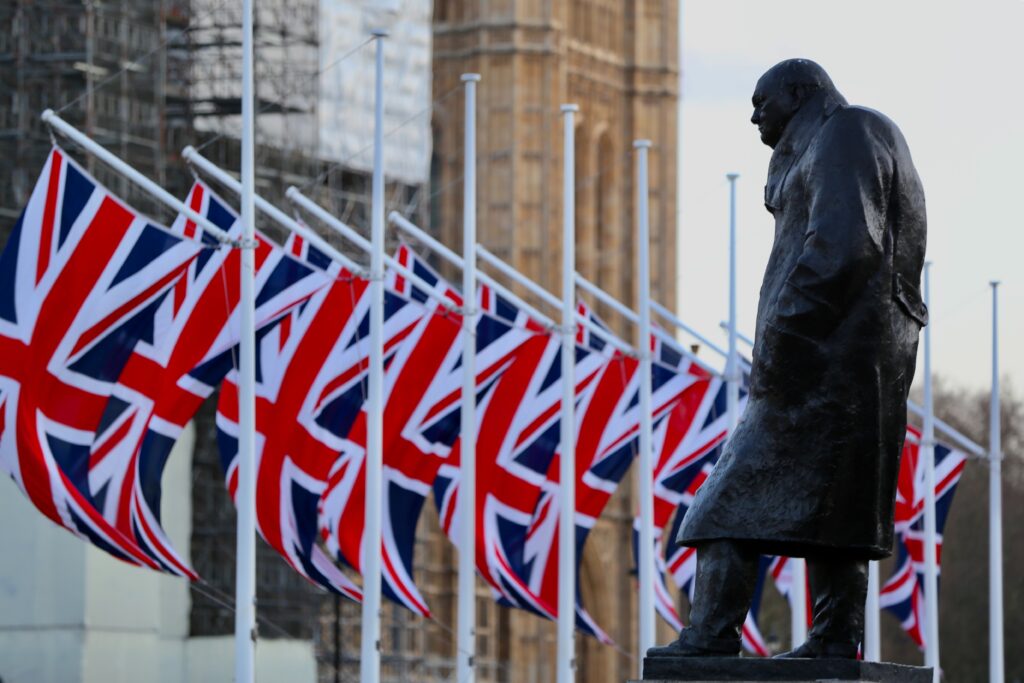
The time will come when the world will impatiently bear the existence of great barbaric nations who may at any time arm themselves and menace civilized nations… The Aryan stock is bound to triumph.
Winston Churchill in 1902, British PM from 1940-45 and 1951-55
One could argue that not much may have changed at all in 100 years, especially in the British Right…
The problem is not that we were once in charge, but that we are not in charge any more… the best fate for Africa would be if the old colonial powers, or their citizens, scrambled once again in her direction; on the understanding that this time they will not be asked to feel guilty.
Boris Johnson in 2002, British PM from 2019-22
Whilst Britain has changed for the better as a whole, it has not changed enough. Racism, classism, sexism, transphobia and many other very, very bad things are still worryingly common views among people. Some are more blatantly aired than others but nonetheless, they are still there and must be challenged, disputed and defeated by any means possible. Furthermore, without questioning the past and present, we cannot embrace the future.
At the end of the First World War, worsening conditions and huge taxes in India meant that the British Raj faced large-scale strikes and protests. Britain, doing what it knows best, suppressed these protests, sometimes violently. On the day of the general strike, 6th April 1919, some peaceful protests turned violent, such as in parts of Punjab where 28 people died. In Amritsar, these protests had stayed peaceful, however after news of Gandhi’s arrest reached the city on the 10th, many people took to the streets. British troops opened fire and 30 people were killed. An outraged crowd then attacked British property, and five Britons were also killed.
Three days later, on the 13th of April, protesters in the city decided to go ahead with a planned rally opposing the Rowlatt Act, despite the rally having been banned. It was to take place at the Jallianwala Bagh, an enclosed garden space. At 6:30 pm, an hour after the rally had started, General Reginald Dyer, with absolutely no warning, ordered all 50 of his troops to immediately fire on the densest parts of the peaceful crowd. Firing did not stop for 10 minutes; until the ammunition had almost been exhausted. British soldiers surrounded the only exit, a narrow corridor and fired into it.
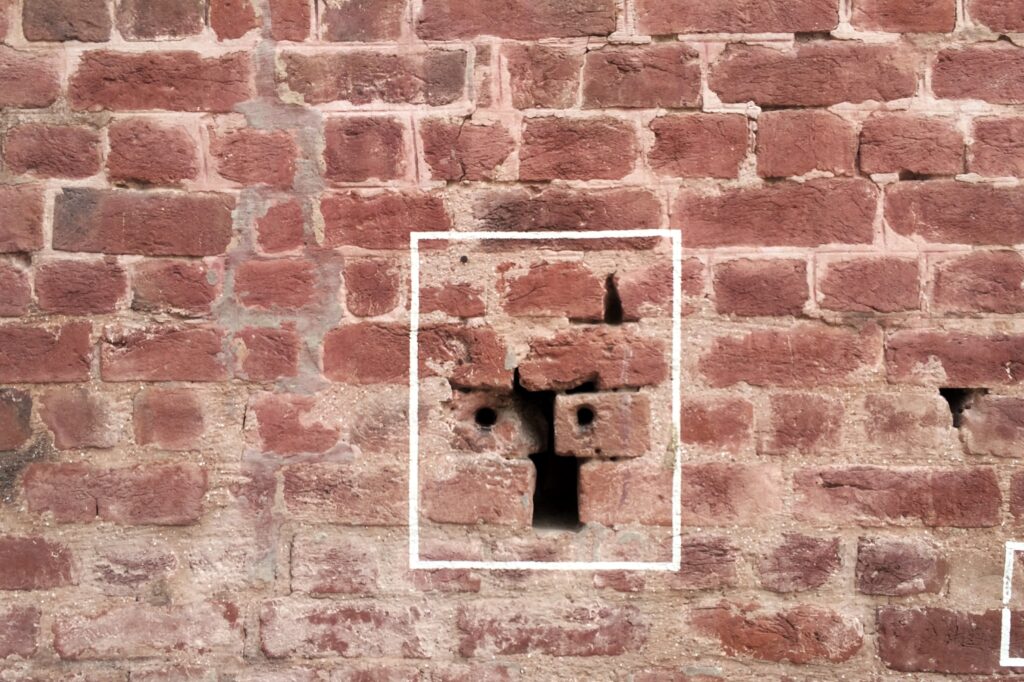
I fired and continued to fire until the crowd dispersed and I considered that this is the least amount of firing which would produce the necessary moral and widespread effect it was my duty to produce… It was no longer a question of merely dispersing the crowd, but one of producing a sufficient moral effect, from the military point of view, not only on those who were present but more specially throughout the Punjab.
General Reginald Dyer, the Butcher of Amritsar, on the 25th August 1919
Bodies were piled 10 to 12 deep around all exits. Dyer enforced the nightly curfew earlier than usual in order to prevent people from helping the wounded, many of whom died during the night. It’s estimated that well over 500 people were killed, including men, women, children and the elderly. Over 1,200 were also wounded.
The event caused an outcry in Britain, condemned by the government and even a young Winston Churchill. In India, however, the British army saw Dyer as a hero and saviour and believed he had been thrown under the bus by the government. It caused a massive amount of distrust towards the British from the Indian public. Many moderates became hardline nationalists afterwards and it is considered by some to be a decisive step towards Indian independence.
The event led to a change in Britain’s “minimal force whenever possible” policy, although this proved to be a hollow promise. As of 2023, Britain has never apologised for the massacre.
For more information on the history of Palestine, feel free to read my previous article written for Israeli Apartheid Week 2023.
When discussing Palestine, the involvement of Britain in the early stages is often forgotten or hardly touched. This is likely due to the massive role the US currently plays in the region but this doesn’t change the fact it can be seen as one of Britain’s colonial crimes.
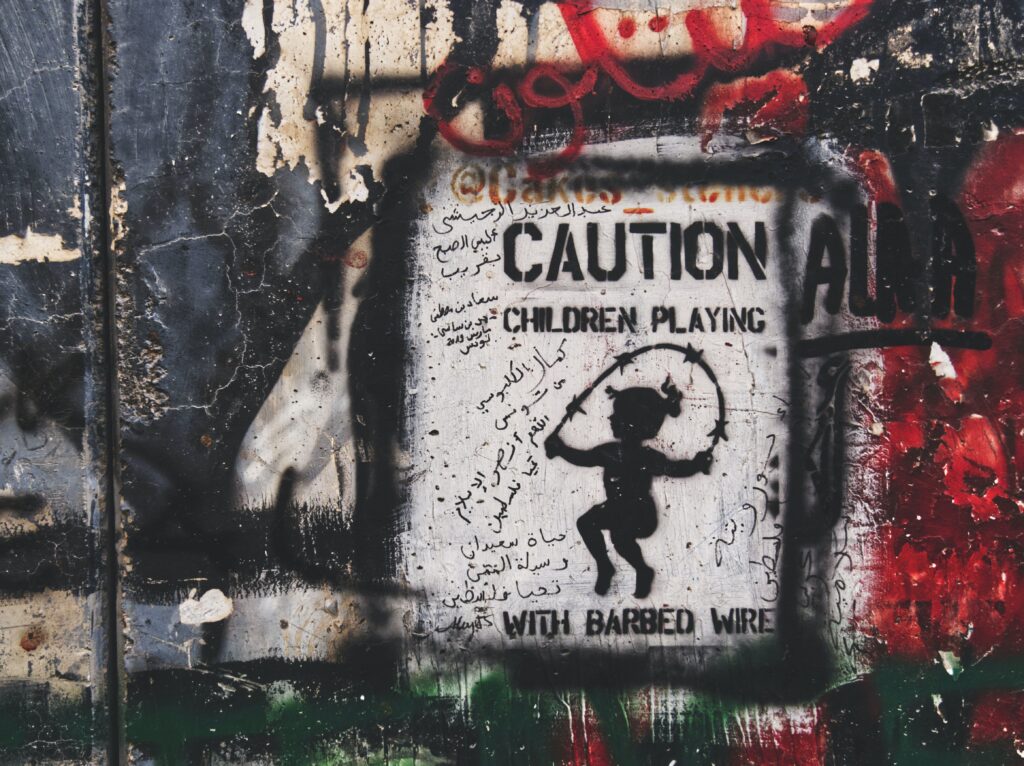
During and following WW1, Britain saw Palestine as a key strategic point. The fall of the Ottoman Empire left a power vacuum in the Middle East that the imperialist powers made sure to fill before any nationalist movements could take hold. Britain thought Palestine would help protect their interests in Egypt and saw the idea of sponsoring a Zionist movement there as their best chance at having a foothold. However, malicious greed combined with incompetency led to conflicting agreements made by the British.
In 1916, they signed the Sykes-Picot Agreement with France, drawing the infamous “line in the sand” and splitting the Ottoman lands between the two nations. At the same time, the British had promised self-government for the Arabs with the McMahon-Hussein Correspondence. To multiply the incompatibility of these agreements, they also issued the Balfour Declaration, which promised a Zionist national home in Palestine.
These decisions, whilst obviously affected by other factors, were made on the basis of imperialism. Britain wanted power and they wanted the land to exercise and gain this power, by any means possible. The decisions made were supposed to outwardly show care and support for the groups involved but underneath it was nothing more than a colonialist project.
In 1922, the League of Nations granted a mandate over Palestine to Britain. Herbert Samuel, former Home Secretary, took the role of the High Commissioner and immediately made clear that he would put down the foundations of an entirely Jewish state, somewhat disregarding the existing population. Increasing Jewish immigration in the following decades led to serious unrest, culminating in the Arab Revolt of 1936-39. Britain suppressed this very harshly, to set an example to the entire population.
Crucially, even during the rise of Nazi Germany, Britain and the US massively restricted Jewish immigration in their own countries. The US only allowed 14,118 immigrants between 1932 and 1935, compared to 144,093 entering Palestine in the same period. There is a definitive injustice in land being given up completely to another group and enforced by a stronger power. An experienced intellectual of the time stated:
The cure for the eviction of Jews from Germany is not to be sought in the eviction of Arabs from their homeland; and the relief of Jewish distress may not be accomplished at the cost of inflicting a corresponding distress upon an innocent and peaceful population.
George Antonius, 1938
Mandatory Palestine was not as brutal as some other events in the list of Britain’s colonial crimes but was based on a blueprint all too common in their imperial history. Selfish meddling and lust for global power led to many people dying and caused a conflict which rages on today. The bedrock of the Zionist occupation was placed there by British imperialism. Ironically, this eventually led to Britain losing Palestine. Greatly weakened following WW2, the US and USSR took advantage of Zionism as a way to incapacitate the British Empire. However, Britain is still complicit and continues to have a strong relationship with Israel to this day.
The full horrors of the British Empire were showcased in the 1950s in Kenya, during the Mau Mau uprising. They refused to let the country decolonise and gain independence and slaughtered in the name of prevention. By 1952, Britain had spent over half a century in Kenya, submitting the population to brutal rule. Native Kenyans heavily outnumbered the white Britons occupying the country. This led to severe and punishing cruelty in order to garner “respect” (fear) from the incumbent population.
Many Kenyans fought for Britain during the Second World War and many died. They fought alongside Britons, who were then rewarded with Kenyan land. Many Kenyan soldiers were not recognised, not paid and some even had their land given away to the people they had fought alongside. The 1940s had also seen many settlers attempt to turn free land into farming land and free people into unpaid labourers. A movement began to grow, starting in the countryside and eventually centring in Nairobi. The radicalisation of the movement was due to militant leadership, emerging from trade unions in the city.
They called for independence and majority rule and after the leaders were arrested there was a nine-day general strike, that was only broken by Britain’s huge show of force. The revolutionary movement subsequently spread and organised further. They took over key union administration offices in Nairobi and set up committees to recruit members of the public. The main groups involved in this activity and the ensuing war were the Kikuyu, Embu and Meru peoples. This factor became decisive in defeat due to the British attempting to play one group off the other.

On the 25th of April 1954, after over a year of warfare, the British launched Operation Anvil. 25,000 troops surrounded and took over Nairobi, holding the entire native population in barbed wire enclosures to be screened. This resulted in 27,000 people being interned and over 20,000 people being sent to the reserves. This had little opposition in the UK, with the ethnicity and country of the people affected by this siege likely a factor.
The operation allowed Britain to cut off the “heart of the Mau Mau” and was seen as a major turning point. British generals repeated this in other cities and by the end of 1954, there were 77,000 people interned. The British then began to force villagisation on the population, taking people from their homes and forcing them into guarded villages.
The extent of British violence during the Mau Mau rebellion was completely repressed at the time. Britain had acted with such malevolent cruelty that it was hard to find a 20th-century equivalent. Even when details were leaked, a successful propaganda campaign saw the Kenyans painted as primitive and barbarian. Every level of British dealings with the Mau Mau was harsh and violent. Historian and Professor John Newsinger puts it very clearly:
Elements within the security forces in Kenya, particularly the police, used the methods of the Gestapo at their worst. This is no exaggeration or hyperbole but a plain statement of fact. Except for a few isolated instances… they were never held to account.
John Newsinger, The Blood Never Dried: A People’s History of the British Empire, 2006
Whilst the days of British monarchs fighting in battle are far behind us, we cannot absolve them of responsibility for Britain’s colonial crimes. No, the Queen was not personally torturing Kenyans to death in the 1950s but this shouldn’t stop us from analysing the fact we have a monarchy in 2023. Constitutional or not, a hereditary head of state who owns millions of pounds worth of land, palaces, cars, staff and ornaments feels wrong. Taxpayer money is being spent on coronations and funerals and “pompous” public events.
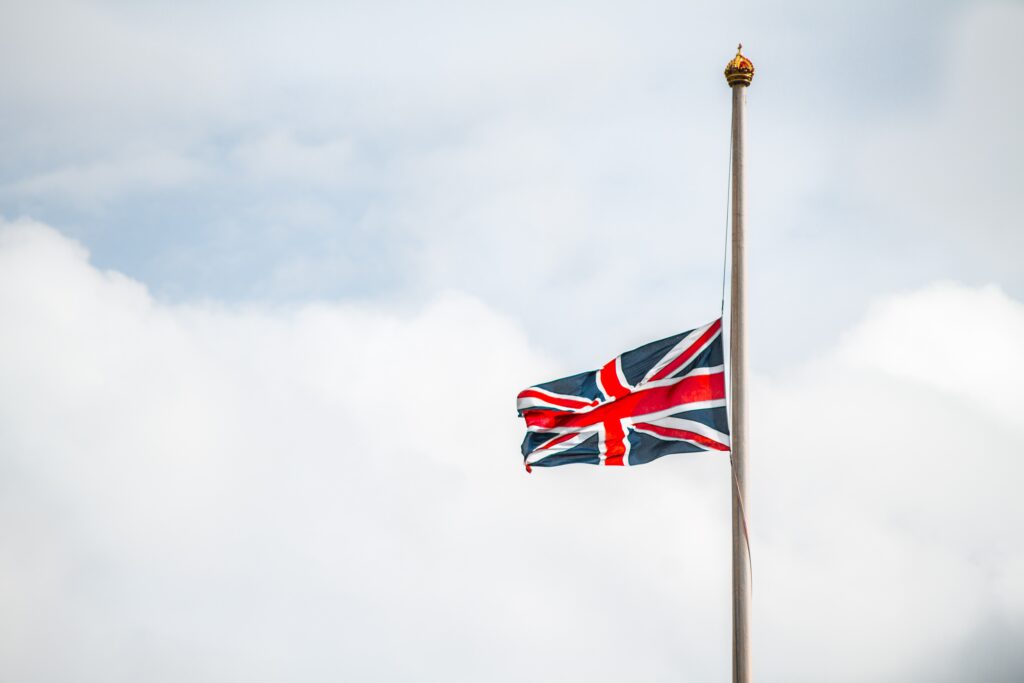
Furthermore, the history of the British crown and its direct links to the Empire (for example – starting it!) make for a horrific case. The monarchy directly benefitted from centuries of rule and exploitation. Massacring native peoples and plundering every ounce of their wealth meant the crown grew exponentially. Every single British monarch since the start of the Empire ranges from directly responsible to absolutely complicit in all of these acts.
The nature of a leader being inherently superior to all of their citizens leads to this dynamic being imprinted and repeated. The mindset allows people to have the same superiority complex towards people they see as “lesser.” No person is inherently superior to any other person. The act of “civilising” is also linked to this. The British crown not only created a violent global empire but also showcased the idea of intrinsic superiority. The effects of the Empire and the effects of this mindset are still clear today, across the world.
It is not an exaggeration to say the British monarchy as an institution is deeply rooted in white supremacy and empire. The past is the past but it is clearly linked to the present. Within the last century, many different crimes have been committed in the name of the crown and that is what we must not forget. All of Britain’s colonial crimes were in the name of the crown. This is the nature of such crimes.
We can’t change the past but we can change the future. The monarchy is an outdated and privileged institution, that should’ve disintegrated with the Romanovs. It holds our history but dissolution would not mean erasing that history, just refusing to continue it. The British monarchy means the British Empire and the British Empire means blood.
Due to the sensitive nature of this topic, you may want to access the range of services available to you through the Guild Advice and the University Wellbeing Advisers. All support details can be found here.
Cover photo by Tamara Menzi from UnSplash